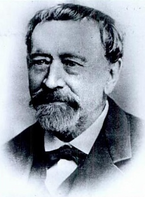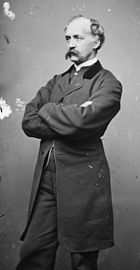United States House election, 1858
|
|
|||||||||||||||||||||||||||||||||||||||||||||||||||||
|---|---|---|---|---|---|---|---|---|---|---|---|---|---|---|---|---|---|---|---|---|---|---|---|---|---|---|---|---|---|---|---|---|---|---|---|---|---|---|---|---|---|---|---|---|---|---|---|---|---|---|---|---|---|
|
|||||||||||||||||||||||||||||||||||||||||||||||||||||
|
All 238 seats to the United States House of Representatives 120 seats were needed for a majority |
|||||||||||||||||||||||||||||||||||||||||||||||||||||
|
|||||||||||||||||||||||||||||||||||||||||||||||||||||
|
|||||||||||||||||||||||||||||||||||||||||||||||||||||
Elections to the United States House of Representatives for the 36th Congress were held in 1858–1859 during James Buchanan's term in office. Following these elections, the Republicans gained control of the House for the first time, benefiting from the continued breakdown in the anti-immigration and anti-Catholic American Party of the Know Nothing Movement, and from strife within the Democratic Party.
The Republicans were actually several seats short of a numerical majority and were forced to form a minority government, but were able to exercise authority with assistance from members of the two smaller parties also elected to the House. The deeply divided Democrats continued to fall apart due to the slavery issue, losing a number of seats. The American Party all but collapsed as immigration became a less prominent issue and because of the party's vague stance on slavery. Southern politicians opposed to secession, Whigs who had been dissatisfied with the Republican Party during their short membership, as well as some former Know-Nothings, came together and ran on the Opposition Party ticket (not to be confused with the Northern Opposition Party of 1854 which was opposed to the spread of slavery into the new territories), which generally allied more with the Republicans than Democrats.
For several states, this was the last Congressional election until the Reconstruction Era, and 29 of the Representatives elected in this election resigned near the end of the Congress following their states' secession from the Union.
...
Wikipedia




